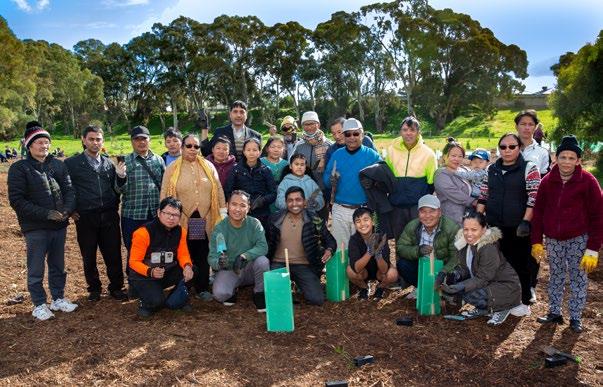
2 minute read
Thinking green
WORDS Michelle English
Human activities have a significant impact on the natural systems that underpin our health and wellbeing as well as our economic prosperity.
Advertisement
Successful cities think about the long term while making decisions today. They care about the environment, their people and the legacy they leave for future generations.
The importance of protecting natural assets and acting substainably is increasingly being recognised by governments, businesses, investors and communities as a priority as the impacts of climate change, natural disasters, declining water supplies and biodiversity loss are felt both globally and locally.
Salisbury is meeting the challenges of sustainability in our own backyard, demonstrated by our leadership in the fields of water conservation and management, waste recovery and the provision of open spaces.
A Sustainable City is one of four directions of the City Plan 2035 which “includes protecting and conserving our diverse natural environment to support biodiversity, reducing Council’s environmental footprint, ensuring we make the most of our resources and enabling our community, environment and infrastructure to be resilient to a changing climate.”
A key action of the City Plan 2035 is to “Review Council’s sustainability strategy to include waste and energy management, cooler suburbs, biodiversity and water.”

Community members helped Council to plant 10,000 trees and shrubs as part of our sustainability-focused activities last year.
The City of Salisbury’s existing Sustainability Strategy, Salisbury, Sustaining Our Environment was adopted by Council in 2007 and needs to be updated to reflect changing legislation, policy and community values.
A review of the Strategy commenced in 2020 and a new draft Sustainability Strategy was endorsed by Council in August 2021 for the purpose of community consultation.
The draft Sustainability Strategy vision is: “A shared commitment, for Council and the community to enhance and protect the natural environment, responsibly manage resources, reduce carbon emissions and be resilient in a changing climate.” the following themes: • Enhancing Biodiversity • Reducing greenhouse gas emissions • Building resilience to climate change • Waste minimisation and resource recovery; and • Water stewardship.
Consultation on the draft Strategy is planned to commence in early 2023 and will involve a combination of online engagement and community pop-up events that will seek feedback on the draft vision, objectives, actions and indicators.
Updates in relation to the community consultation process will be shared on Council’s website.










